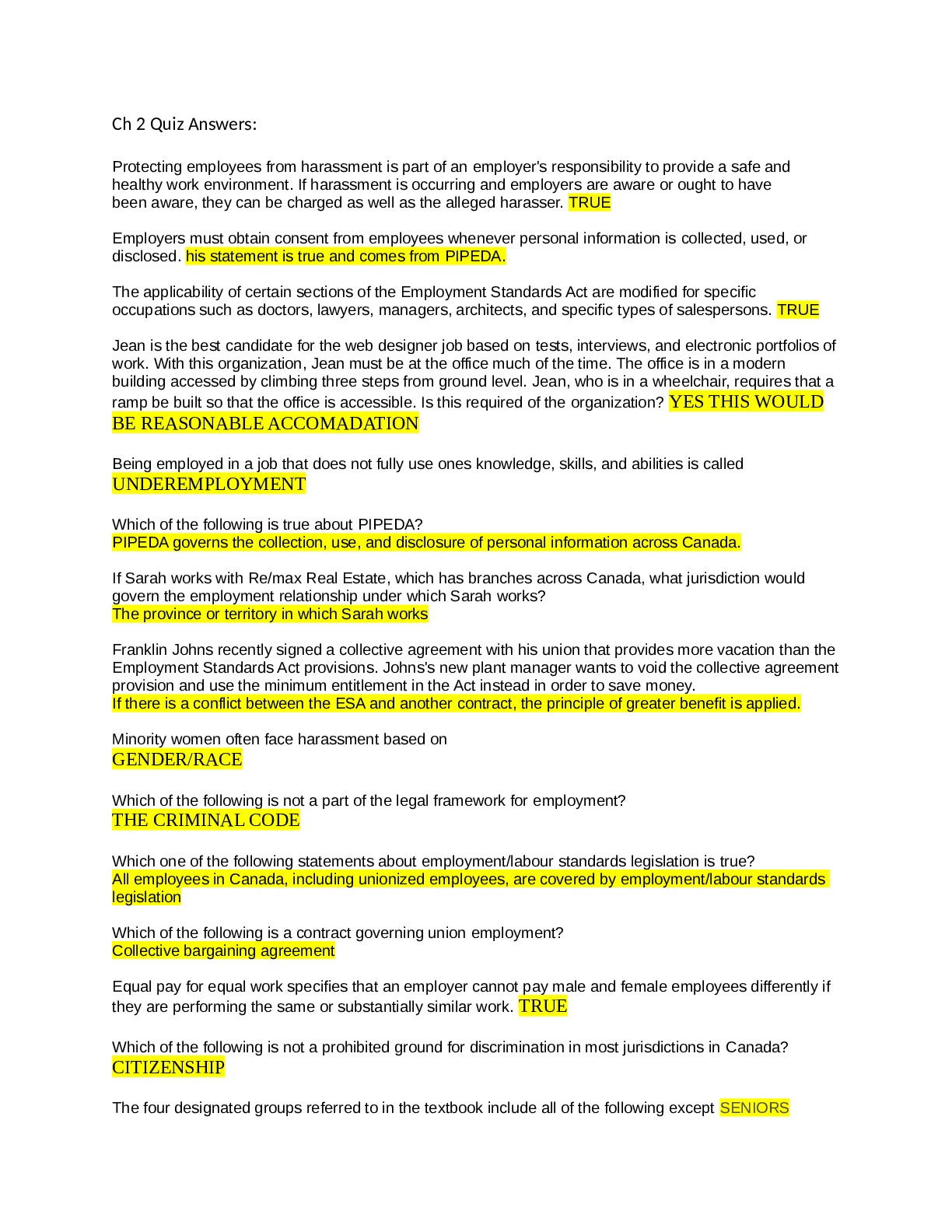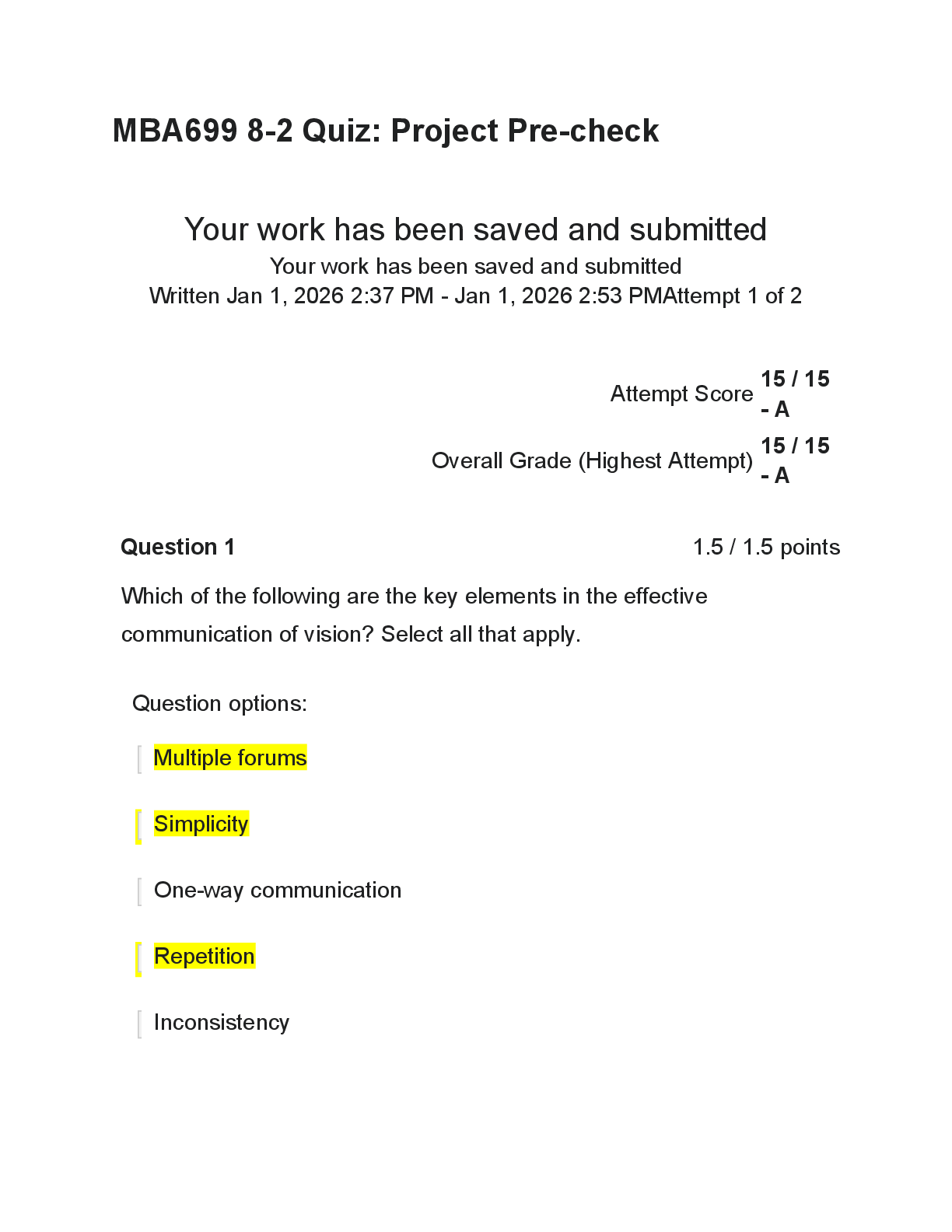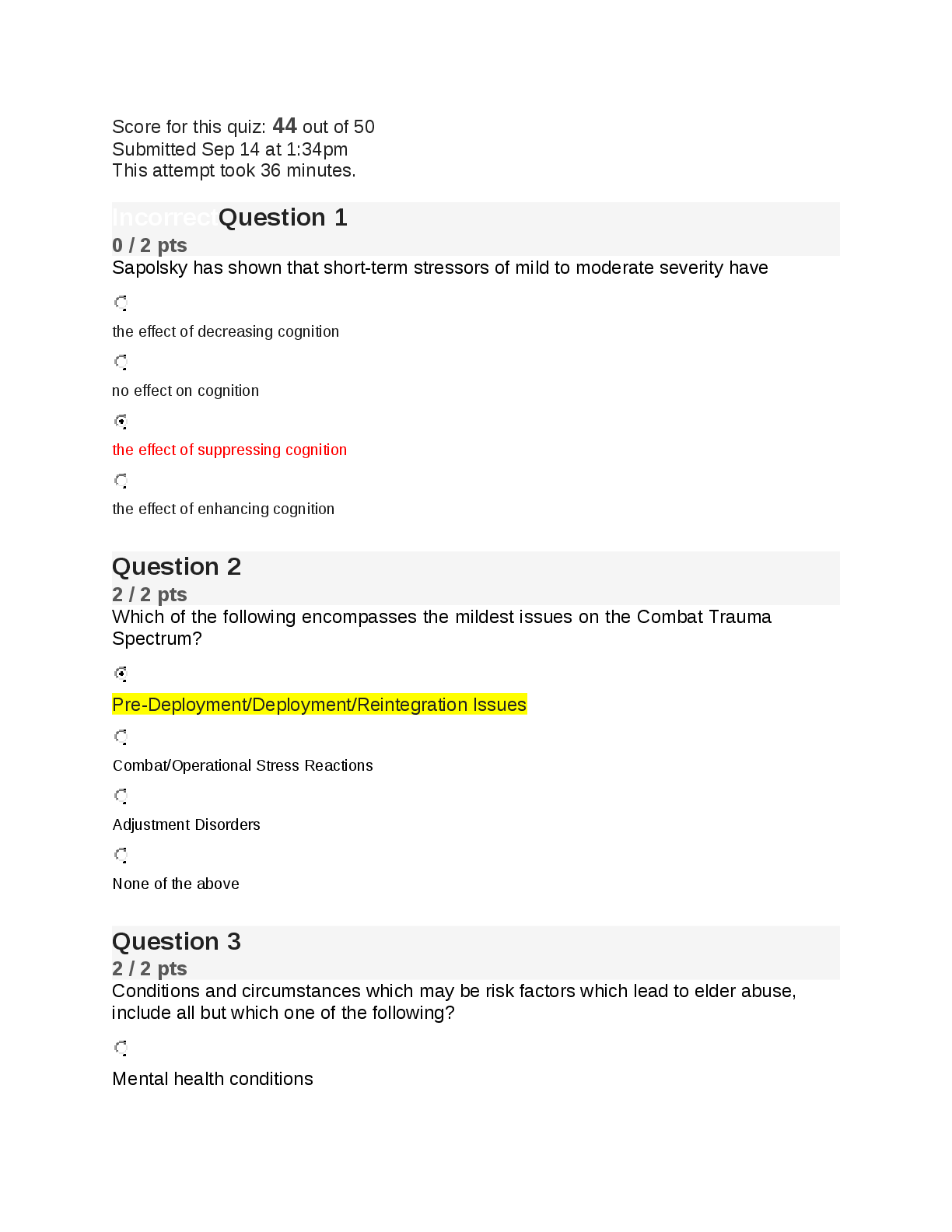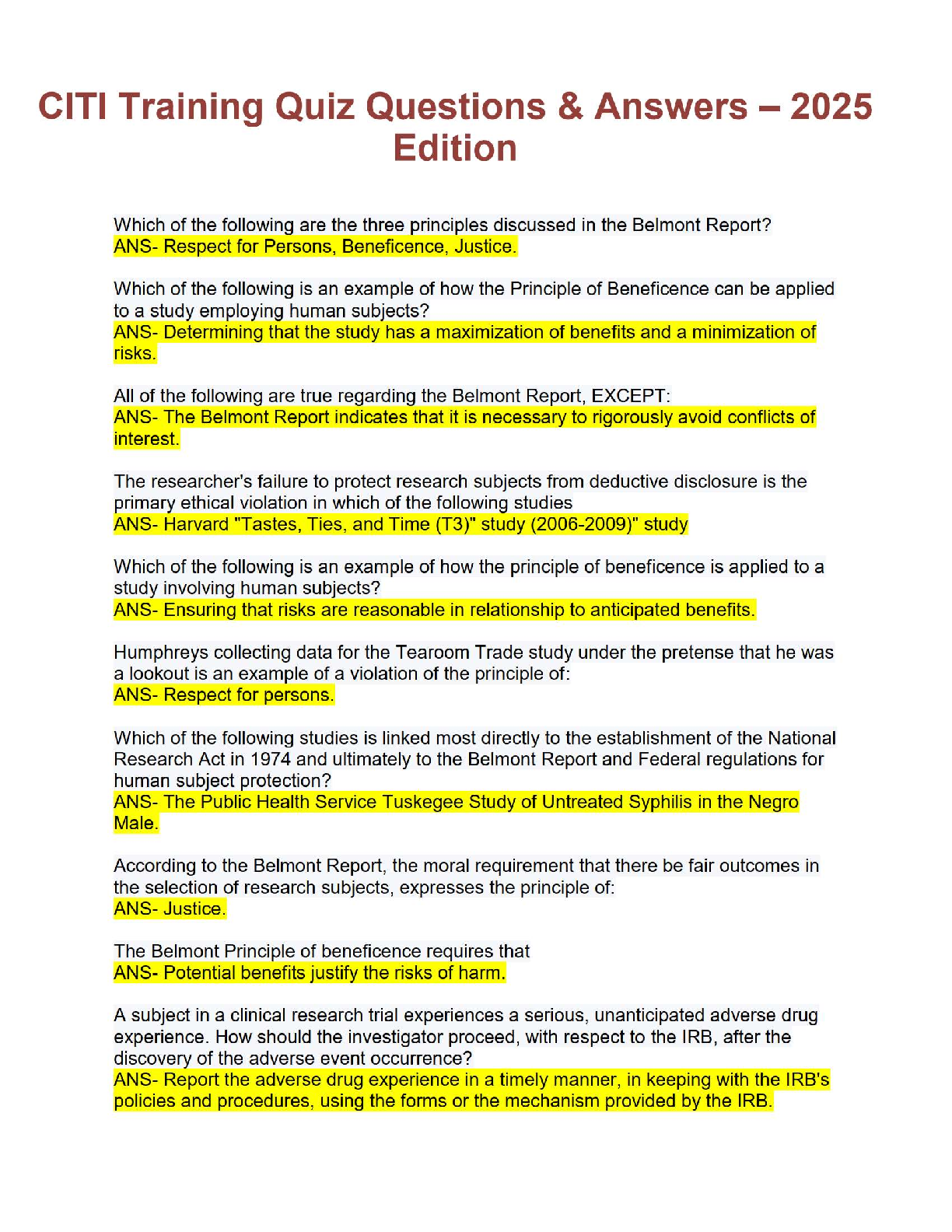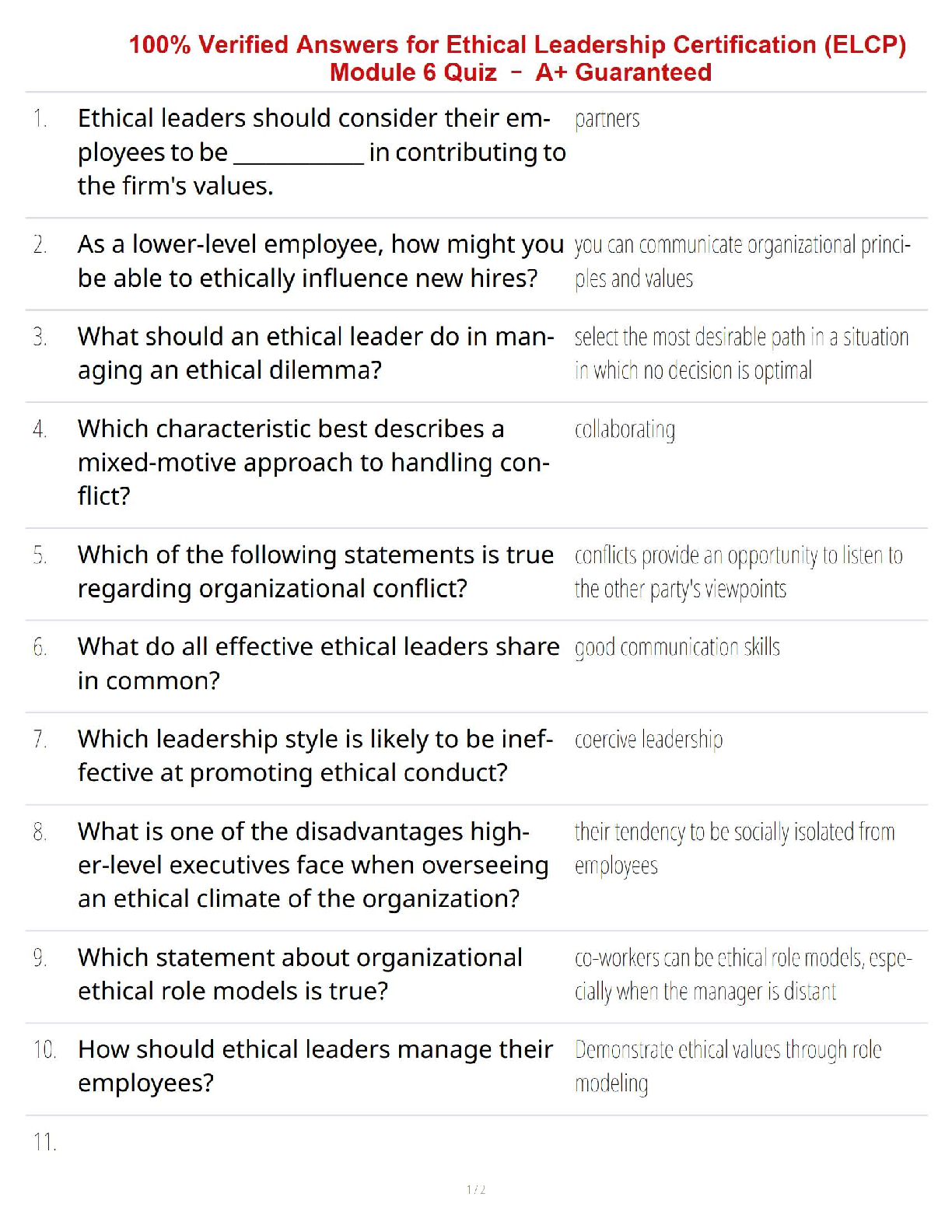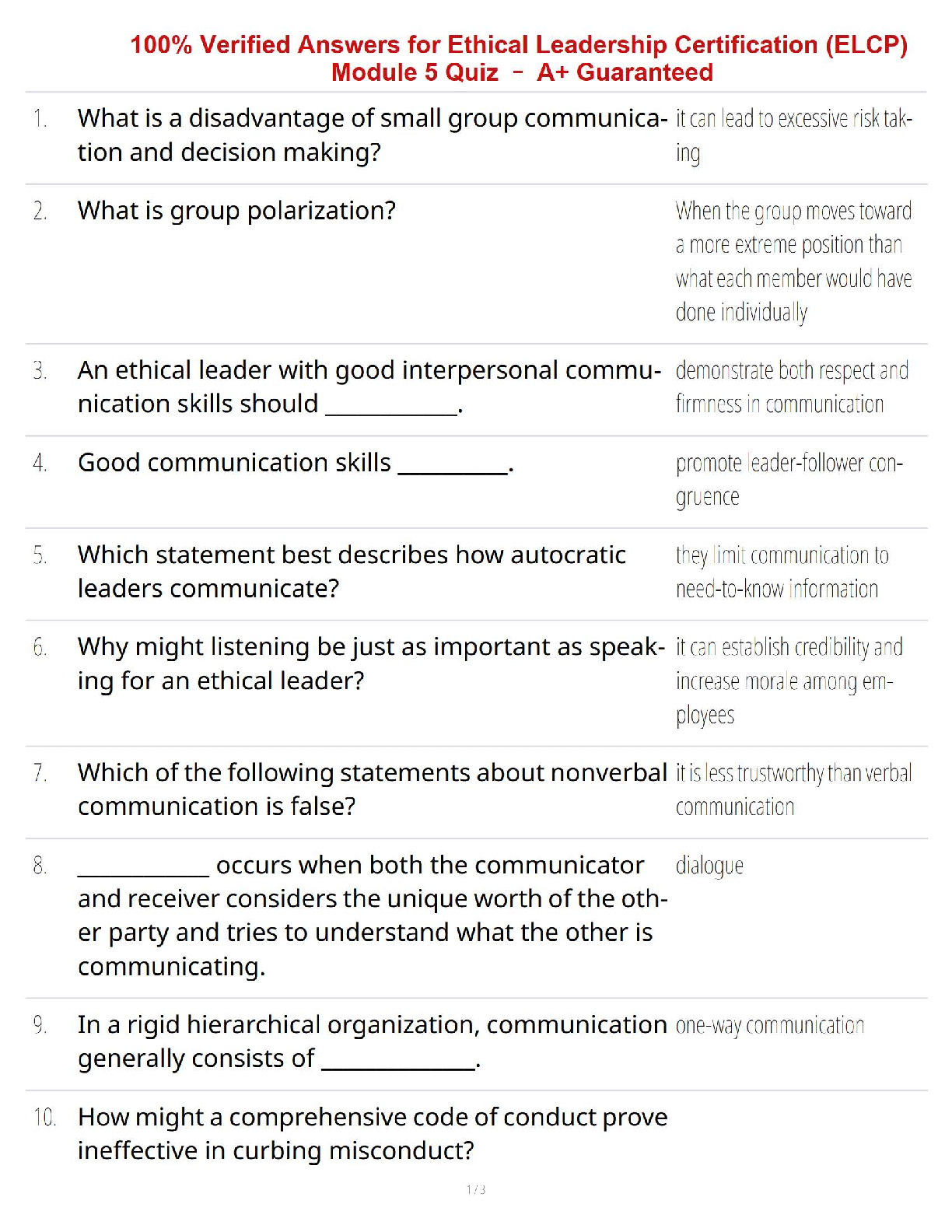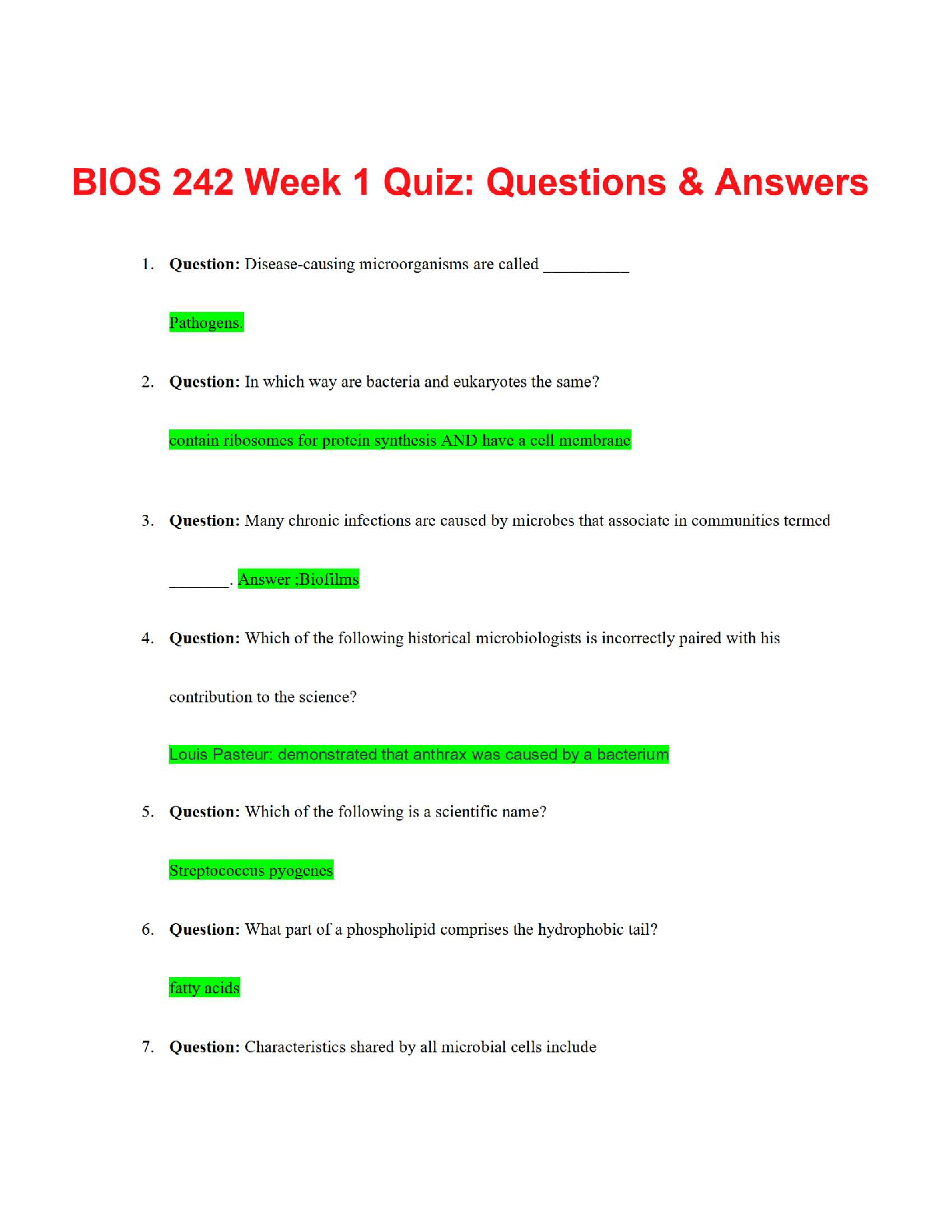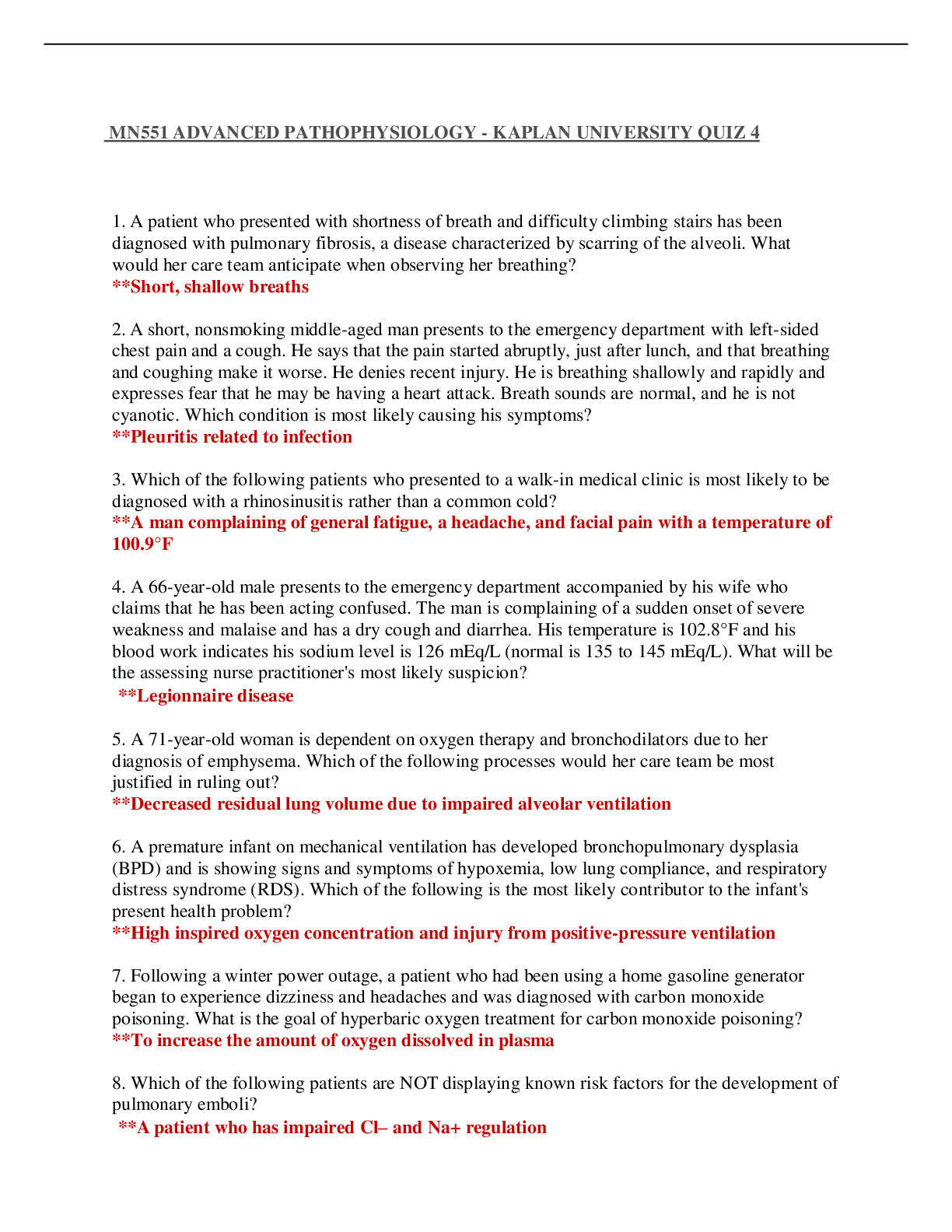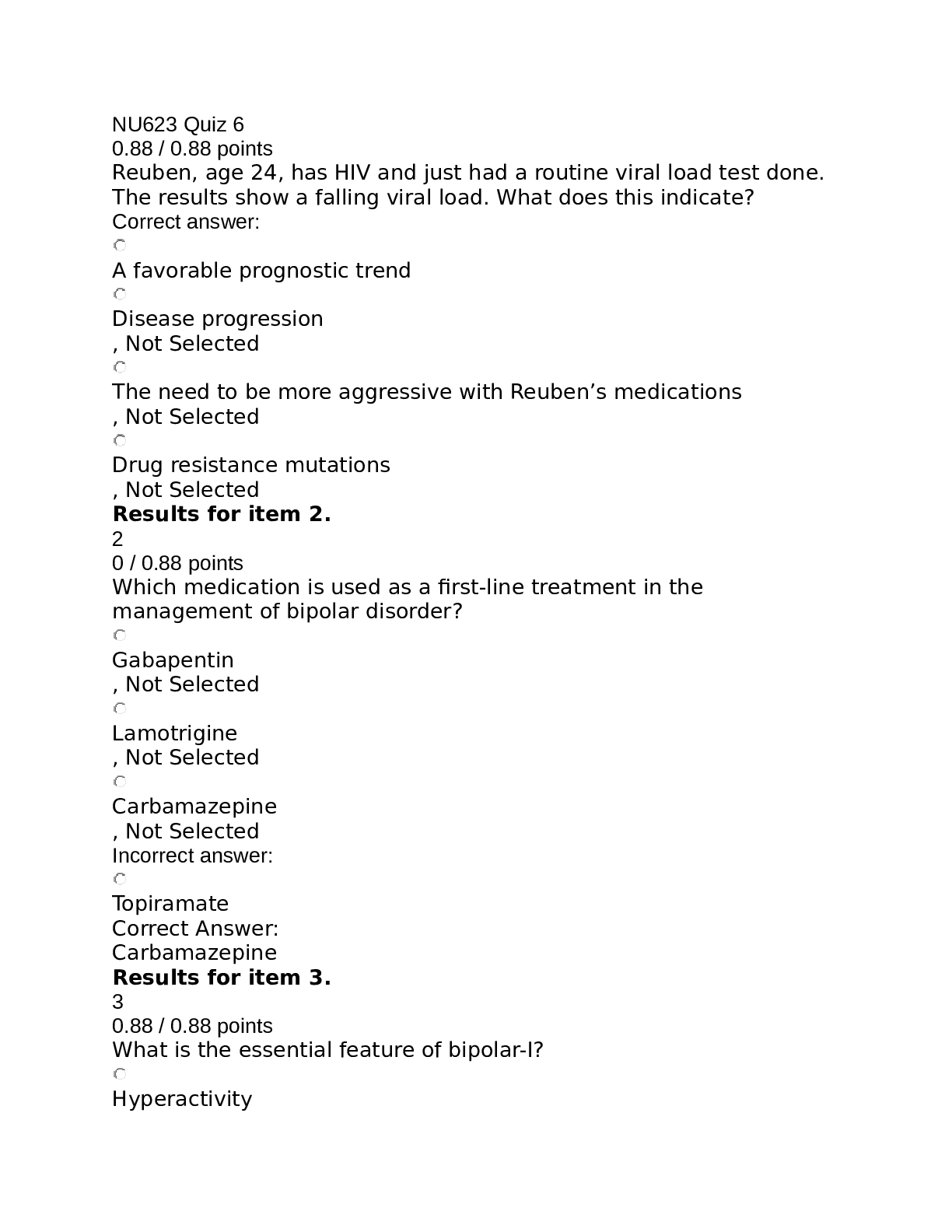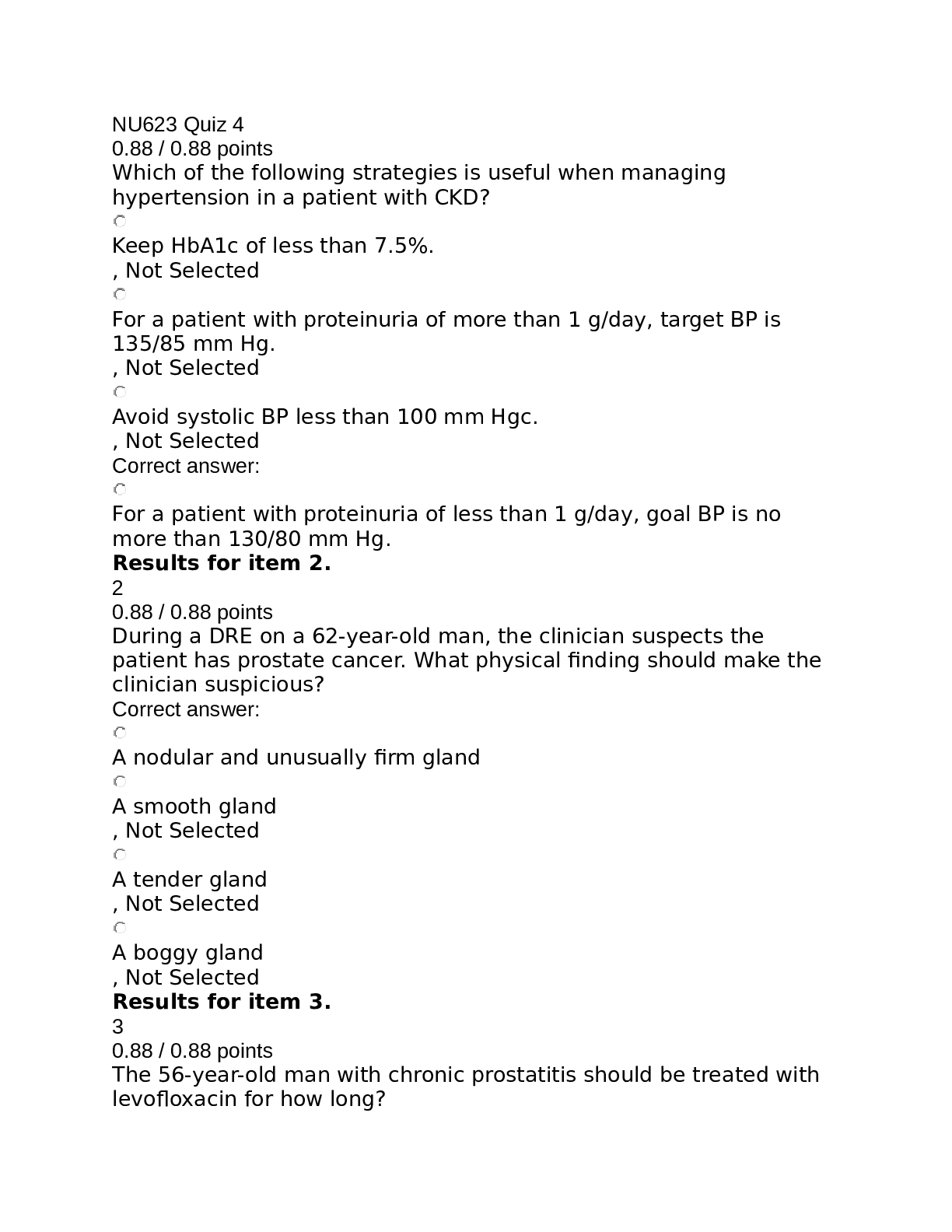. In their origin, ethics meant _____________, while morality signified ______________. a) wisdom / mood b) custom / objective good c) rights / custom d) justice / rights e) They both meant the same thing: custom. 2. Mil
...
. In their origin, ethics meant _____________, while morality signified ______________. a) wisdom / mood b) custom / objective good c) rights / custom d) justice / rights e) They both meant the same thing: custom. 2. Milton Friedman believes that ___________ have social responsibilities, not _____________. a) people / corporations b) corporations / governments c) voters / governments d) corporate executives / shareholders e) shareholders / corporate executives 3. What is the Friedman Doctrine? a) Greed is good. b) Social responsibility of business is to increase its profits so long as it stays within the law. c) The social responsibility of business is to increase its profits regardless of the law. d) Toppling foreign governments is justifiable if they are socialist. e) Eat Fresh! 4. According to Albert Carr, bluffing is the same thing as a) lying. b) being trustful. c) trusting. d) deceiving e) being ethical 5. Carr compares the expectations of ___________ to those of someone in business. a) an anthropologist in the field b) a journalist during an interview c) a suspect under interrogation d) a criminal in court e) Colonel Sanders eating a Popeye’s 1 This study source was downloaded by 100000850301844 from CourseHero.com on 07-31-2022 11:22:21 GMT -05:00 https://www.coursehero.com/file/60025198/Quiz-1-Typeddocx/ 6. Norman Bowie claims that bluffing within a firm tends to erode a) the company’s reputation. b) confidence of the shareholders. c) its relationship with government. d) its overseas reputation. e) the company’s collaboration and cohesion. 7. Bowie uses what industry to showcase the effects of firms that bluff and those that don’t? a) Automotive b) Insurance c) Banking d) Resource e) Retail 8. Bowie’s case for not bluffing in business may to work best in a) company-to company sales. b) a company’s internal labour relations. c) company-to-consumer sales. d) accounting. e) labour union – worker relations. 9. Tamar claims that for small purchases, trust is a) very important to the consumer. b) important for about half of all consumers. c) relatively unimportant. d) relatively unimportant for about half of all consumers. e) she does not discuss this. 10. Which does R. Edward Freeman NOT include as a stakeholder? a) Workers b) Owners c) The environment d) Suppliers e) Customers 11. Freeman suggests that adopting his stakeholder model will a) lead the way for world peace. b) “save capitalism from itself”. c) eventually produce a “classless” society. d) “mitigate” the need for more government regulation. e) “level the playing field” for a spectrum of business. 2 This study source was downloaded by 100000850301844 from CourseHero.com on 07-31-2022 11:22:21 GMT -05:00 https://www.coursehero.com/file/60025198/Quiz-1-Typeddocx/ Part II – Short Answer (3 marks each) 12. What is the social responsibility of business for Milton Friedman and what are not its responsibilities? If executive or management do engage in responsibilities that are not its “proper” business, what then, is executive or management according to Friedman? 13. Why is business like a “game” for Albert Carr – what is the analogy? Discuss a point of weakness. 14. Discuss briefly how morality, law, and the market regulate trust for Tamar Frankel. A stakeholder and a stockholder
[Show More]




